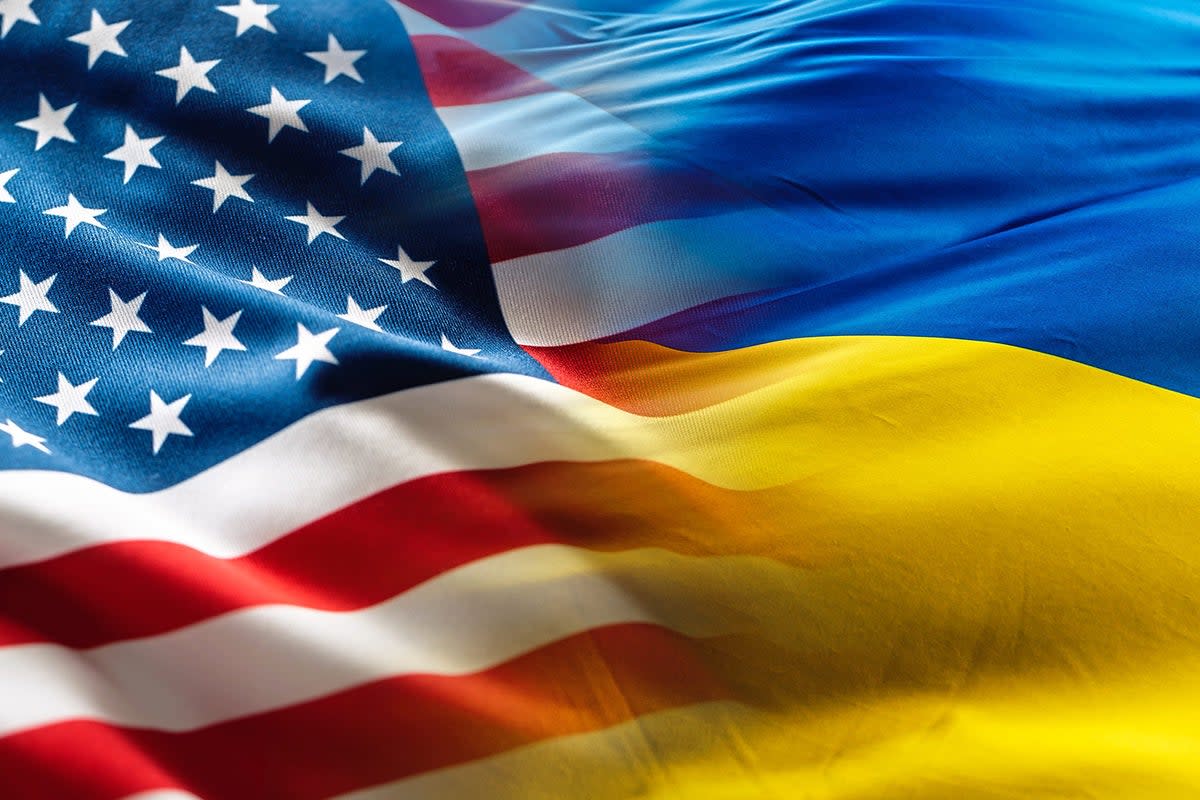OPINION - Is the US going cold on Ukraine?

Volodymyr Zelensky, senior ministers and Ukrainian commanders this month travelled to the Polish border for a crunch meeting with senior US commanders to explain why America and other allies shouldn’t abandon his country and force it to negotiate with Russia.
The US team was led by General Mark Milley, head of the armed forces, and the senior Nato commander Christopher Cavoli of the US. The Ukrainians insisted on the presence of senior British officers, and the Chief of the Defence Staff, Admiral Sir Tony Radakin, is believed to have attended.
The fact that they met in person reflects growing fears that both Democrat and Republican politicians in the US want to stop supporting Ukraine, which they don’t want as an issue in next year’s presidential election campaign.
There are also fears that the Conservative campaign team preparing for the general election want Ukraine off the table due to its expense.
Joe Biden, who is notorious for his thin skin and personal dislikes of world leaders, has had poor relations with Zelensky from their first meeting, according to a book about his presidency due out next week. Apparently Zelensky didn’t pay due deference to the older man in a disastrous first encounter in September 2021 — which neither thought went well, and relations seem barely to have improved.
The Kyiv government is concerned about leaks and reports in the US media, now echoed here, about the perceived failure of Ukraine’s summer campaign — with claims that commanders have failed to heed American advice on strategy and tactics.
The Ukraine command doesn’t divulge all its thinking and information to even its closest allies. Relations with British allies and advisers seem to be valued as much, and more, as those with American officers.
Anonymous military officials, some thought to be in the Pentagon and in the US intelligence and national security services, have inspired a series of articles and leaks across US mainstream media suggesting that Ukraine’s summer offensive is failing.
Military officers and intelligence analysts, mostly unnamed, have been quoted in the Washington Post, New York Times and the Financial Times’ Washington bureau, between August 17 and 22. The headlines state “US intelligence says Ukraine will fail to meet offensive’s key goal,” in the Post, and “Ukraine’s forces and firepower are miscalculated, US officials say,” in the New York Times, and “US grows doubtful Ukraine offensive can quickly succeed” in the FT. All have remarkably similar quotes from anonymous intelligence officials.
This is accompanied by a campaign to undermine Zelensky himself. This week The Guardian, stable companion to the Washington Post, carried a report boosting the first book on the Biden presidency, The Last Politician, by Franklin Foer. He writes that Zelensky “bombed” at his first meeting with Biden in September 2021.
Part of the problem with the critique of Ukraine and Zelensky led by the Washington Post and waged since the spring by the New York Times, is that most of the officials actually named cannot point to a record of success in recent military matters, including Biden himself. As vice president and president, Biden presided over a chaotic policy in Afghanistan, compounded by bad judgment and bad timing. Some in Washington, and among senior Nato allies, worry that he could badly misjudge the crisis in eastern Europe.
None of the officers quoted have had first-hand experience of the kind of conflict now being fought in Ukraine. It is the first digital war, fought in cyber space and in electronic warfare as well as on the ground in trenches and minefields. “I wish the media commentary could raise its eyes from the second line of defences in Zaporizhzhia,” a senior British officer commented.
The arrival of the F-16 fighter- bombers from Norway, the Netherlands and Denmark in the next few months should be a much-needed boost to Ukrainian air power but no one thinks they will be decisive game-changers.
Three veteran strategists have countered the Washington Post narrative — General David Petraeus, Eliot Cohen and Professor Sir Lawrence Freedman of King’s College, London. All three point out that the West’s Ukraine policy should not be based on the outcome of the current phase of fighting, bloody though it is. Ben Wallace’s vociferous support has been particularly welcomed, leading the way for sending main battle tanks like the Challenger and Leopard and stand-off cruise missiles like the Storm Shadow.
The US has contributed some £62 billion in military aid to date. Britain has given £4.6 billion over two years. In both cases quite a chunk of the money goes back to US and UK defence industries. The EU collectively is by far the biggest donor of civil aid.
On the ground the cost of the war continues to be horrendous. Russia has lost 270,000 combat personnel killed and wounded, and at least 4,000 tanks and their equivalent. Ukraine, according to the Pentagon, has lost 70,000 in the summer fighting alone — a toll of at least 200,000 since February last year.
Vladimir Putin is reported to be committing a further 100,000 troops to the battle in the east, on the Kupiansk–Lyman front line.
The problem for the media influence campaign for a truce is that there is no reasonable peace to be had right now. A hastily cobbled truce by Christmas is likely to be a mere flick of the pause button at best. When it resumes the war would be worse — for all of us across Europe and the western alliance.


